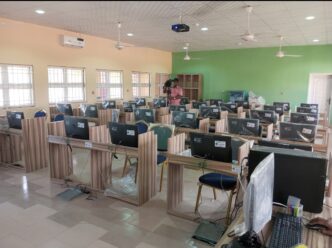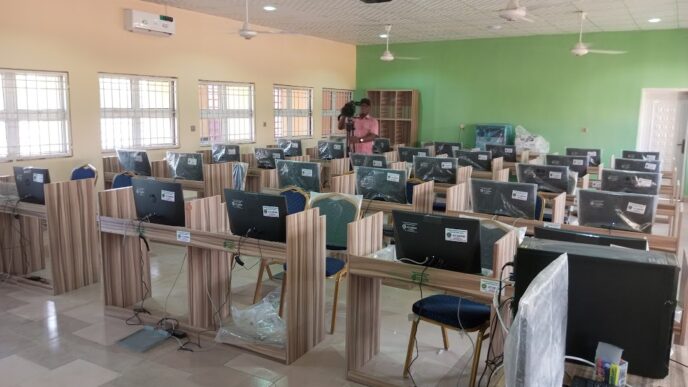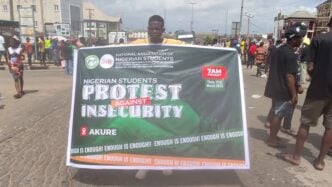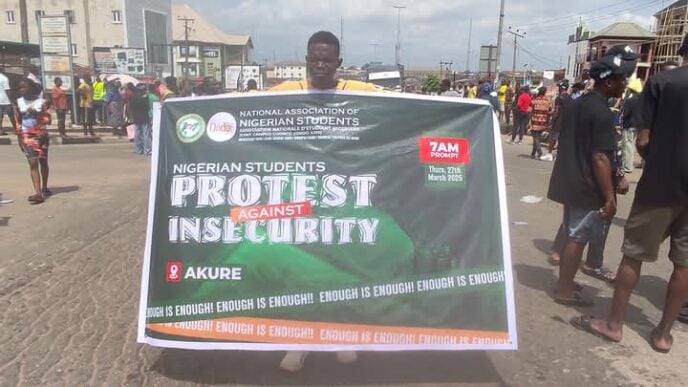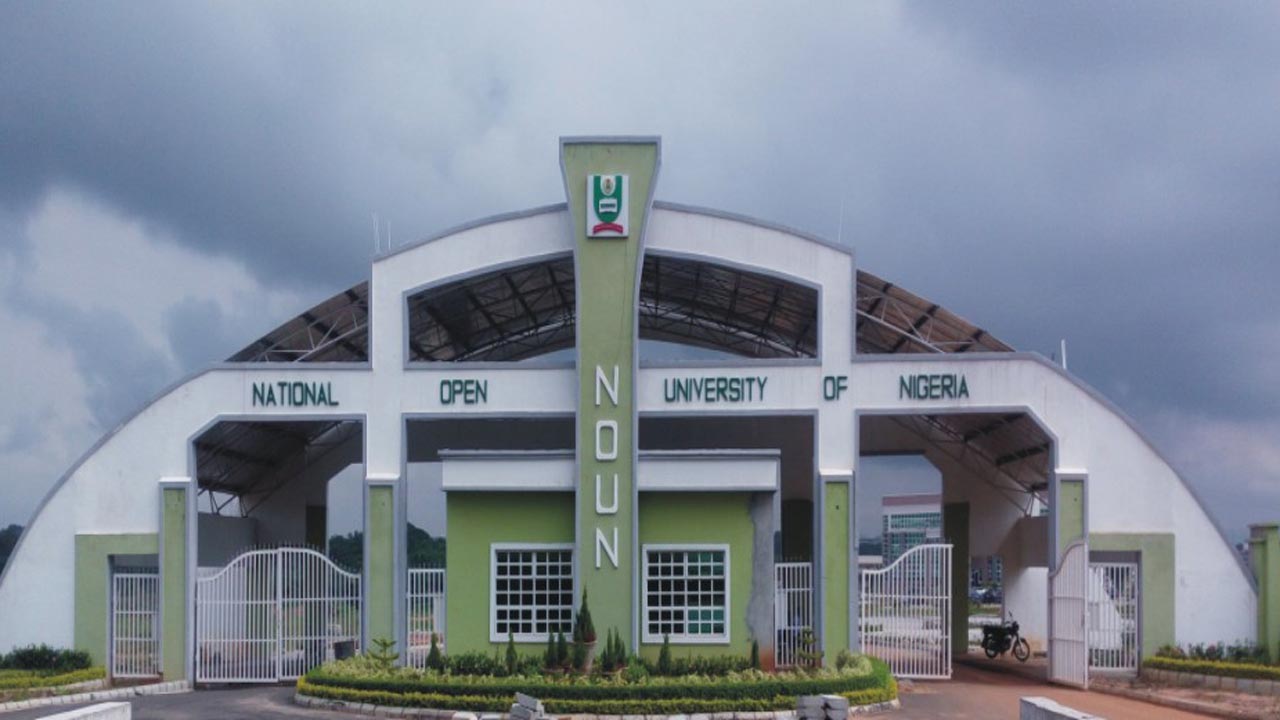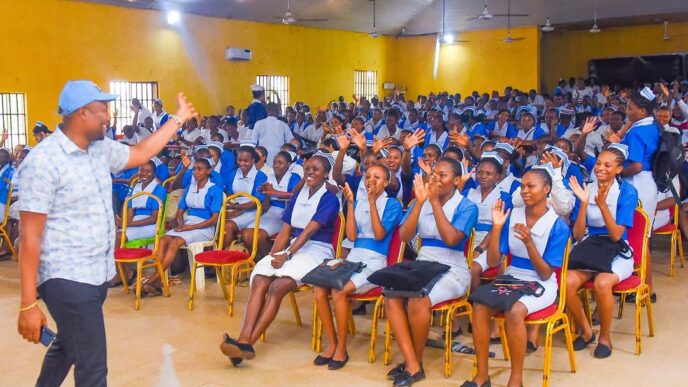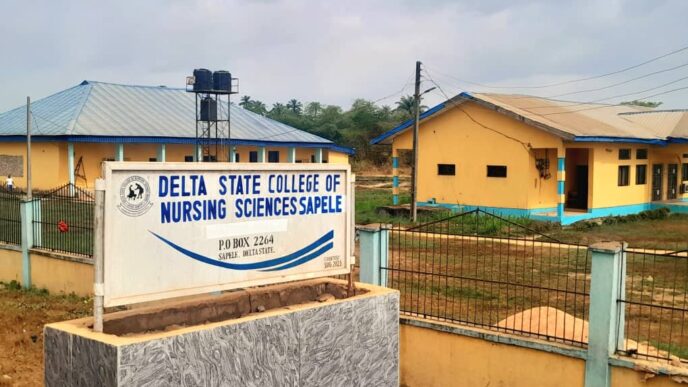A unity school | File photo
The Alumni Association of the National Institute for Security Studies (AANISS) has asked the government to make security studies mandatory at all levels of education.
AANISS’ recommendation is contained in a communique issued after its maiden annual lecture held on February 13 in Abuja.
“The nation is grappling with numerous security challenges, including regional separatist movements, kidnapping, banditry, farmers/herders conflicts, terrorism, illegal arms deals, cybercrimes and human trafficking,” the communique reads.
“There is a need for a paradigm shift from a theoretical approach to insecurity to a more robust/inclusive practical approach.
Advertisement
“There is an inadequate number of security and intelligence personnel to cover all communities including ungoverned spaces.
“A common denominator in security-challenged nations is the absence of Citizens’ engagement.
“The need for collaboration and cooperation by the various government organisations, ministries, departments and agencies has become obvious.
Advertisement
“Local Government Councils need to justify the financial autonomy granted them by using the resources to contain security challenges at the local government level.
“Nigerians in diaspora, with their connections, exposures and remittances can be used to great advantage in the procurement of security-related equipment. They can also contribute to projecting Nigeria’s image positively to the world.”
WAY FORWARD
AANISS said government at all levels should continue to create sustainable employment opportunities for teeming Nigerian youths to reduce the tendency of their involvement in crime.
Advertisement
“Whole of government, whole of society, whole of nation concept and people-centric security architecture should be adopted,” AANISS said.
“There should be a collaboration between Nigerian Security agencies and neighbouring Francophone countries for enhanced intelligence gathering and security operations at the country’s borders.
“Local communities should be trained, empowered and engaged as part of the first line of defence.
“Major stakeholders should be involved in policy formulation, implementation, monitoring and evaluation.
Advertisement
“Security education and awareness should be made mandatory at all levels of education in Nigeria.
“Associations like AANI, AANISS and AANDEC should collaborate to address some national issues.”
Advertisement
AANISS said relevant authorities should create and maintain joint security/intelligence operation centres with complementary operational command structures.
“The centres are to organise joint patrols, surveillance and coordinated operations to tackle illegal arms smuggling, drug trafficking and cross border crimes,” the alumni said.
Advertisement
“Our traditional value of communalism should be revived through traditional institutions at community levels to prepare them as the first line of defence in security initiatives.
“This will enhance inclusiveness, trust, cooperation, and proactive measures in crime prevention and serve as check on potential security challenges at the grassroots level.
Advertisement
“Relevant Agencies to make available Counter Terrorism Instruments for information, education and use by all, including traditional rulers. This should also be incorporated into our educational programs in schools.
“AANISS to liaise with the Department of State Services to work out guidelines and modalities for the implementation of first-line of defence measures in communities.
“In the light of the discourse, it is clear that Mobilising Stakeholders to Curb Insecurity in Nigeria requires a practical, inclusive and coordinated approach.”
AANISS said it is committed to enhancing intelligence sharing, fostering robust partnerships and implementing strategic initiatives that address the multifaceted nature of insecurity in Nigeria.
The event was attended by Christopher Musa, chief of defence staff; Nuhu Ribadu, national security adviser (NSA); Oluwatosin Ajayi, director-general of the Department of Security Services (DSS); and Garba Wahab, director-general of the Nigerian Army Resource Centre.
Mohammed Mohammed, director-general of the National Intelligence Agency (NIA); Emmanuel Undiandeye, chief of defence intelligence; and Adewale Adeniyi, comptroller-general of the Nigeria Customs Service were represented.
Dayo Mobereola, director-general of the Nigerian Maritime Administration and Safety Agency (NIMASA); and Kayode Egbetokun, the inspector-general of police, were represented, among others.
The communique was signed by Mike Ejiofor, AANISS’ president.
Add a comment

